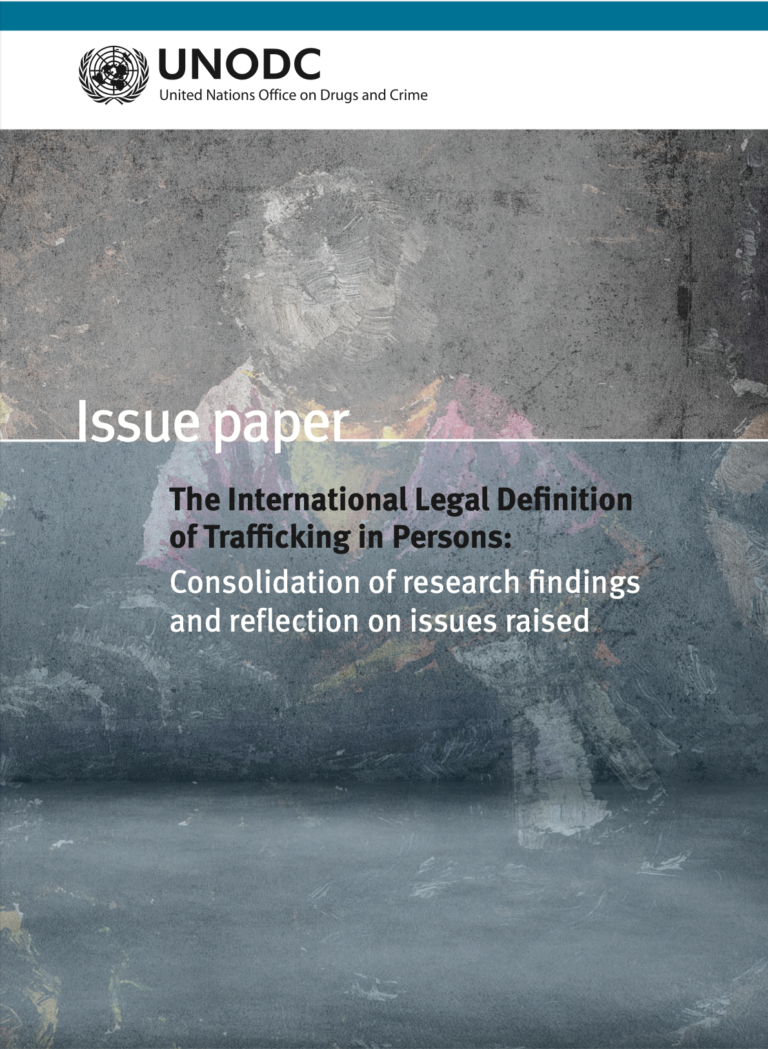Until December 2000, the term “trafficking in persons” was not defined in international law, despite its incorporation in several international legal instruments.The long-standing failure to develop an agreed-upon definition of trafficking in persons reflected major differences of opin- ion concerning the ultimate end result of trafficking, its constitutive acts and their relative sig- nificance, as well as similarities and differences between trafficking and related issues such as irregular migration and the facilitated cross-border movement of individuals into prostitution or irregular employment.
The United Nations Protocol to Prevent, Suppress and Punish Trafficking in Persons, Especially Women and Children, supplementing the United Nations Convention against Transnational Organized Crime (Trafficking in Persons Protocol) is considered to be “the principal, legally binding global instrument to combat trafficking in persons,” not least because it sets out the very first international legal definition of “trafficking in persons”. Under article 3 of that instru- ment, trafficking in persons comprises three elements: (i) an “action”, being recruitment, trans- portation, transfer, harbouring or receipt of persons; (ii) a “means” by which that action is achieved (threats or use of force or other forms of coercion, abduction, fraud, deception, abuse of power or a position of vulnerability, and the giving or receiving of payments or benefits to achieve consent of a person having control over another person); and (iii) a “purpose” (of the action/means): namely, exploitation, which includes, at a minimum, “the exploitation of the prostitution of others or other forms of sexual exploitation, forced labour or services, slavery or practices similar to slavery, servitude or the removal of organs”.

